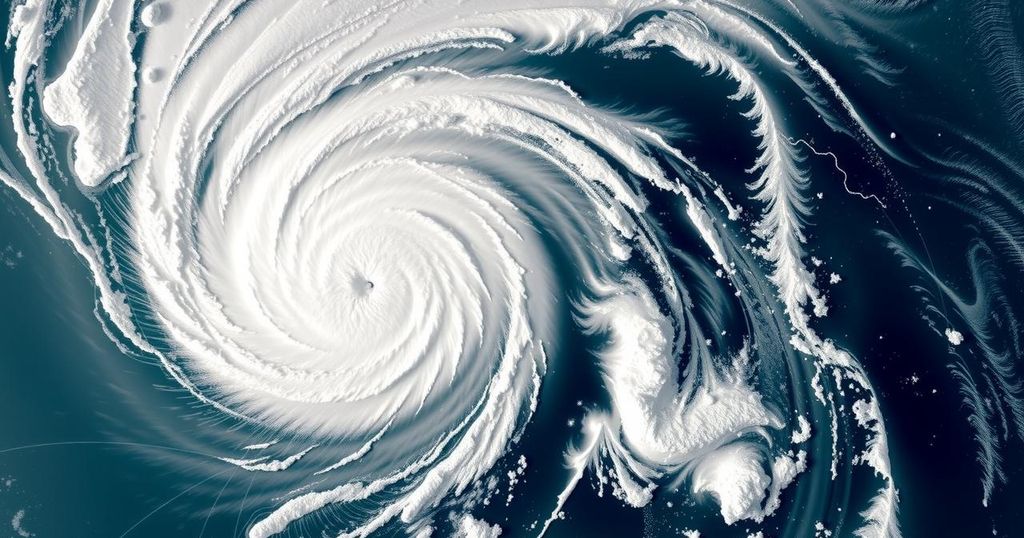Tropical Cyclone Dikeledi Causes Devastation in Madagascar and Mayotte

Tropical Cyclone Dikeledi impacted Madagascar, causing three fatalities and extensive flooding in Mayotte. Originally a disturbance between Indonesia and Australia, it developed into a tropical cyclone with significant wind speeds. Forecasts predict Dikeledi’s reintensification as it moves southwards, posing additional threats to Mozambique.
Over the weekend, Tropical Cyclone Dikeledi made landfall in Madagascar, bringing devastation and loss of life. Originating from a weak tropical disturbance between Indonesia and Australia on January 2, Dikeledi rapidly intensified, transforming into a tropical depression and subsequently a tropical cyclone by January 10, reaching wind speeds of 74mph. The storm struck Madagascar’s northern regions, specifically between Vohemar and Antsiranana, yielding heavy rainfall that resulted in the tragic deaths of three individuals. As Dikeledi dissipated into a tropical storm, it moved into the Mozambique Channel, yet continued to affect the French territory of Mayotte, exacerbating conditions after Cyclone Chido’s aftermath in December. Reports indicate that at least 14,500 residents were forced to seeking refuge in emergency shelters due to flooding and mudslides.
Currently, forecasts suggest that Cyclone Dikeledi will track southwards in the Mozambique Channel, with a high potential for reintensification into a stronger storm as it approaches Mozambique. Wind speeds are anticipated to escalate to over 100mph later in the week, prompting concerns over severe thunderstorms and additional adverse weather.
Furthermore, the region experienced strong winds associated with the Bora phenomenon, particularly near the Adriatic Sea. Wind gusts were reported reaching 45mph in Croatia, with peaks nearing 60mph during the morning hours. This cold katabatic wind phenomenon is expected to subside by Tuesday after continuing its impact through Monday.
Tropical cyclones are severe weather phenomena that form over warm ocean waters and can cause widespread destruction. Cyclone Dikeledi originated as a tropical disturbance, showcasing the rapid development tropical systems can undergo when conditions are favorable. The Indian Ocean region is particularly vulnerable to such storms, with Madagascar frequently experiencing the brunt of these cyclonic events due to its geographical location. Dikeledi serves as a critical reminder of the dangers posed by climate systems, especially in the context of recovery efforts following earlier storms such as Cyclone Chido.
In summary, Cyclone Dikeledi has again highlighted the vulnerability of Madagascar to tropical weather systems, resulting in loss of life and significant displacement. With forecasts indicating the possibility of renewed intensification, further impacts are anticipated for Mozambique and surrounding areas. The ongoing risks from such phenomena warrant continuous monitoring and preparation to safeguard affected communities.
Original Source: www.theguardian.com






